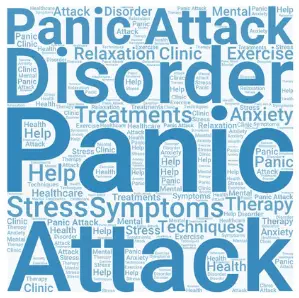Many factors can contribute to high blood pressure, including anxiety. When anxious, our body releases stress hormones like adrenaline and cortisol. These hormones cause our heart to beat faster and our blood vessels to constrict. This can lead to an increase in blood pressure. Occasional spikes in blood pressure due to anxiety are usually nothing to worry about. But chronic anxiety can lead to long-term high blood pressure, which can be dangerous. If you think your anxiety may be causing your high blood pressure, talk to your doctor. They can help you develop a treatment plan to lower your blood pressure and manage your anxiety.

Anxiety can cause high blood pressure due to many reasons. First, anxiety can lead to increased heart rate and respiration. This, in turn, can increase blood pressure. Next, anxiety can cause constriction of blood vessels. This also leads to increased blood pressure. Finally, anxiety can lead to increased stress hormones, such as cortisol. This can also contribute to high blood pressure.
While anxiety itself is not a medical condition, it can be a symptom of an underlying problem. If you experience anxiety and high blood pressure, it is important to see your doctor to rule out any potential medical causes. Treatment for anxiety-related high blood pressure is medication, therapy, or a combination.
Anxiety causes high blood pressure by constricting the blood vessels. It also increases the heart rate. This can lead to a dangerous condition called hypertension. If left untreated, hypertension can damage the heart and lead to stroke or heart attack.
Some experts believe that anxiety can cause high blood pressure. This is because when we are anxious, our bodies release stress hormones like adrenaline and cortisol. These hormones can narrow our blood vessels and make our hearts work harder. This can lead to an increase in blood pressure. The link between anxiety and high blood pressure is not understood. But reducing stress and anxiety may help to lower blood pressure. This is why managing anxiety and stress levels are essential, as this may help keep blood pressure in check.
Anxiety attack sufferers often struggle with anxiety caused by high blood pressure. This can be a challenging and dangerous condition to deal with. High blood pressure can lead to serious health problems.
In conclusion, anxiety can cause high blood pressure. It constricts blood vessels and increases heart rate. This can lead to a dangerous condition called hypertension. If left untreated, hypertension can damage the heart and lead to stroke or heart attack. Managing stress and anxiety levels may help to keep blood pressure in check. If you suffer from panic attacks or anxiety attacks and high blood pressure, it is important to seek medical help as soon as possible.
